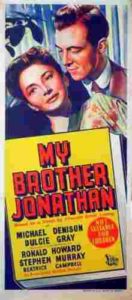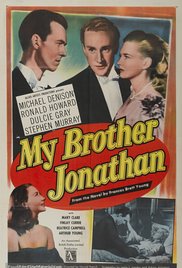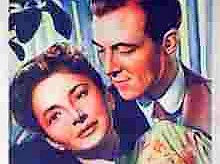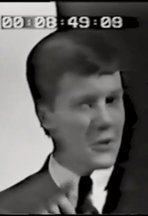My Brother Jonathan *** (1947, Michael Denison Dulcie Gray, Ronald Howard, Beatrice Campbell, Stephen Murray) – Classic Movie Review 5652
Michael Denison stars as Dr Jonathan Dakers in the story and struggles of the English provincial doctor, based on the once famous novel by Francis Brett Young, and told in flashback to his World War Two veteran son Tony (Pete [Peter] Murray).
The early 20th-century doctor in Wednesford, a poor foundry town in the Black Country region of the West Midlands in England (west of Birmingham) lives in the shadow of his older brother Harold (Ronald Howard). Harold goes off to university while Jonathan stays at home to look after his widowed mother, accepting a share in a poor medical practice. [Spoiler alert] But then Harold is killed in World War One.
Denison’s Dakers weds society beauty Edie (Beatrice Campbell), who turned him down for Howard’s Harold, but she dies giving birth to Howard’s illegitimate son. Dulcie Gray (the real-life Mrs Denison, married since 1939) is the Plain Jane called Rachel Hammond whom Denison marries to bring up the child.
Director Harold French’s melodramatic 1947 British soap opera is efficiently done and conscientious in all departments. But, despite the over-heated plot, it remains an over-restrained film that only occasionally raises the spirits. The production is uncomfortably set bound and the acting is too polite, though Denison excels in his first starring role and Gray gives a satisfyingly delicate performance.
Eunice Gayson, Sylvia Trench in Dr No and From Russia with Love, appears in her first film, at the age of 16.
Also in the cast are Stephen Murray, Avice Landone, Mary Clare, Finlay Currie, James Roberston Justice, James Hayter, Wylie Watson, Beatrice Varley, Wilfrid Hyde White, George Woodbridge, Thora Hird, Fred Groves, Arthur Young, Jessica Spencer, John Salew, Hilda Bayley, Josephine Stuart and Jack Melford.
Leslie L Landau and Adrian Arlington adapt Young’s novel.
Derick Williams shoots in black and white.
Giving up acting because of his allergy to stage make-up, Pete Murray (born on 19 September 1925) became a disc jockey in 1949, working for pirate radio, and then BBC radio from 1958 and commercial radio from 1983 after the BBC sacked him for saying on live radio just before the 1983 election that a vote for the Labour Party would be a vote for Communism in Britain.
© Derek Winnert 2017 Classic Movie Review 5652
Check out more reviews on http://derekwinnert.com






